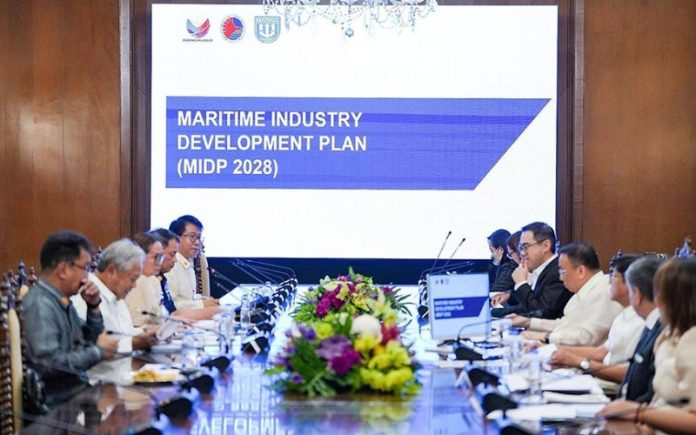
-
President Ferdinand Marcos, Jr. directed the Maritime Industry Authority to standardize maritime industry rules and operations to make them at par with global standards
-
He described as “obsolete” many of these rules due to a lack of uniformity
-
Philippine shipowners have long complained about the uneven playing field, including being levied taxes on fuel which their foreign counterparts are exempt from
President Ferdinand Marcos, Jr. has directed the Maritime Industry Authority (MARINA) to standardize maritime industry rules and processes, noting many are obsolete because of a lack of a unified system.
During his meeting with MARINA on January 17, Marcos said the first step towards implementing reforms in the maritime industry is to standardize operations and make them at par with international standards. Only then can the proposed Maritime Industry Development Plan (MIDP) 2028–which newly-appointed MARINA administrator Sonia Malaluan sought approval for from Marcos–be implemented.
The updated roadmap’s launch in February 2023 was attended by Marcos, who then urged all concerned government agencies “to pursue a whole-of-government approach to effectively implement the MIDP 2028.
MIDP 2028’s goal is that by 2028, the Philippines will have achieved a strong, and reliable Philippine merchant fleet that addresses the sea transport requirements of the archipelago in support of the national development agenda.
Among its core programs are the modernization and expansion of the Philippine domestic shipping, promotion and expansion of the Philippine overseas shipping, modernization of the Philippine shipbuilding and ship repair industry and promotion of highly skilled Filipino and competitive maritime workforce.
“These are all promotion, modernization but let us standardize first our systems and at the same time we undertake this like promotion of highly skilled Filipino maritime workforce. Ship building and ship repair, we haven’t done much to promote. The rest are for further development. So let’s standardize our practices so that we will be the same with our international counterparts. We have to fix our house first. Because we have to compete and in order to do that we should have an even playing field and then we should gain an advantage,” Marcos said.
He also looked into the high cost of domestic shipping in the country compared to other countries. It has been reported that it is usually cheaper to ship cargoes to the Philippines from overseas such as Hong Kong than it is to ship locally, for instance from Manila to General Santos City.
MARINA said this is so because of the lack of economies of scale (international operators have bigger ships allowing them to offer lower costs than smaller domestic vessels); excise taxes on fuel are levied on local shipowners but not on their foreign counterparts; and vessel quality of local ships is not up to par with international ships.
MARINA said the country’s fleet is old, making them inefficient. MARINA stressed the need to change the current maritime policy, saying the government still allows 20-year-old passenger ships to operate, and 25-year-old vessels to haul freight.
Domestic shipowners have for long claimed that operating ships is costly because of the high cost of doing business in the Philippines, noting such factors as taxes, lack of economies of scale, and the lack of equipment at some of the country’s ports.
Marcos said the problems and challenges cited by MARINA require standardization of operations and practices in the maritime industry so that proper programs are put in place. “Let’s standardize and also prioritize in terms of the immediacy of some of these,” Marcos ordered Malaluan.




